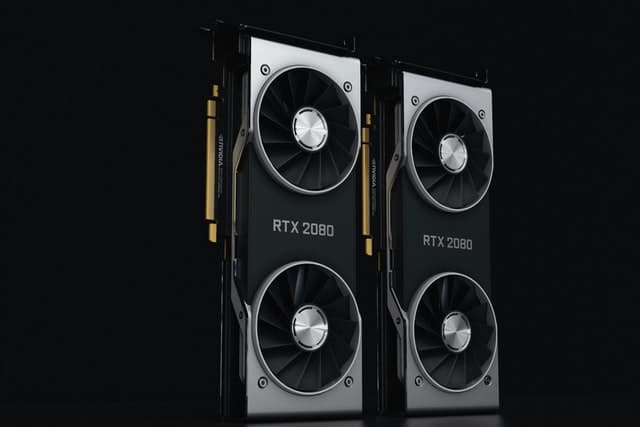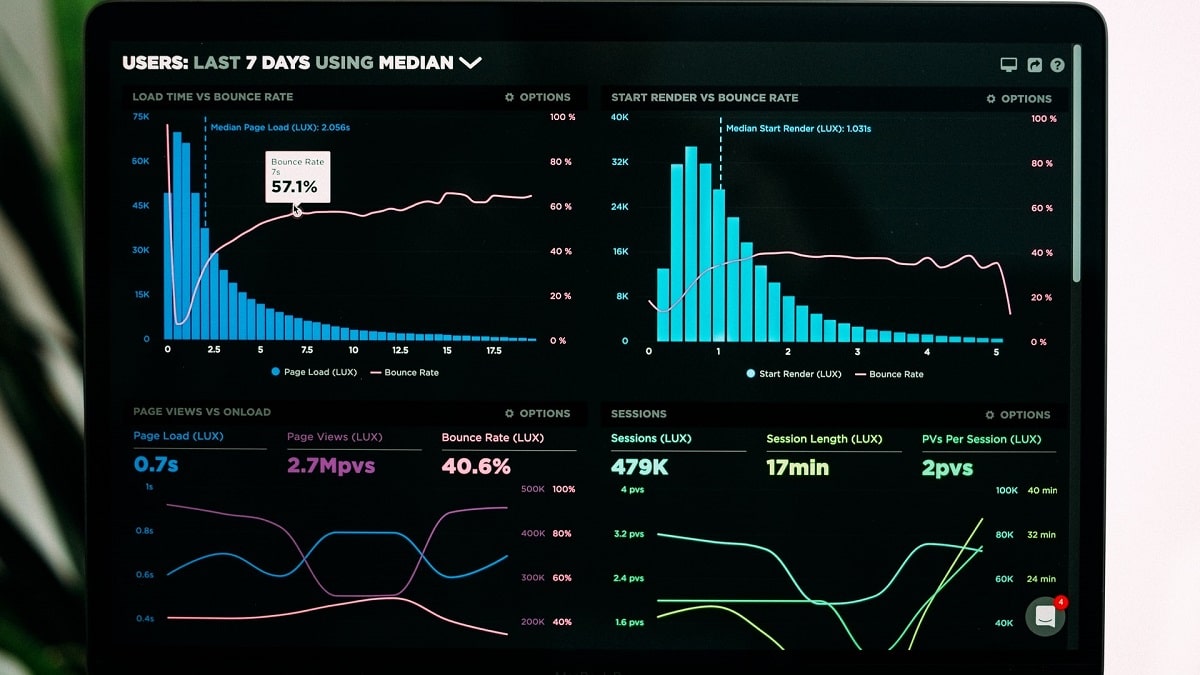Last updated: Feb 14, 2021
Cisco Systems Inc. is a multinational technology conglomerate based in San Jose, California. It was founded by Len Bosack and Sandy Lerner in 1984 and operates across the IT sector.
Cisco manufactures and sells telecommunication equipment and networking software and hardware like switches and routers. The company also deals in high-tech solutions and emerging technologies like IoT.
Cisco was established to provide networking services in the US but expanded globally quickly after pioneering the concept of local area network (LAN). It was the first provider to link distant computers using LAN technology.
Cisco has a market cap of $199 billion. Over the years, the company has expanded through acquisitions, such as OpenDNS, Webex, Jabber, and Jasper. In January of 2021, Cisco reached an agreement to acquire Acacia for $4.5 billion in cash. Cisco initially offered to acquire Acacia for $2.6 billion in July 2019, but the deal collapsed.
Currently, nearly 85% of global Internet traffic runs through Cisco’s networking products and systems. Cisco’s shares of the switch market and the router market declined in Q2 2020 to 47.2% and 33.2% respectively.
Its sales of hyper-converged systems also dropped by 27% in Q2 2020 due to stiff competition from Dell and Huawei. Cisco’s worldwide market share fell to 9.8% in Q2 2020 from 13.5% percent share in Q2 2019.
In Q1 2021, Cisco saw a 5% increase in public sector orders y-o-y but orders from its enterprise, commercial, and service segments declined. Overall, its revenue for the quarter declined 9% year over year to $11.93 billion. The networking giant is losing market share in different segments due to stiff competition from providers like Juniper and Arista.
Here is an in-depth analysis of Cisco’s top competitors and alternatives:
1. Juniper Networks
Year founded: 1996
Headquarter: Sunnyvale, California
Juniper is an American multinational corporation that develops and markets networking products. It is a traditional manufacturer of routers and switches, which compete with Cisco’s products. Juniper operates globally just like Cisco and has about 9,400 employees.
It holds 2.8% of the switch market and is ranked 5th behind HPE-Aruba. Juniper also holds a 10.2% share of the router market and is ranked 3rd behind Cisco and Huawei.
From switches, routers, security products, and other networking solutions, Juniper is ranked among the top players in each sector. It competes for Cisco’s market share across all sectors, making it the top Cisco competitor.
2. HPE Aruba
Year founded: 2002
Headquarter: Santa Clara, California
Formerly known as Aruba Wireless Networks, HPE Aruba is a wireless networking subsidiary of Hewlett Packard Enterprise. HPE acquired Aruba in 2015 for US$3 billion. In July 2020, HPE acquired Silver Peak for $925 million to bolster Aruba’s edge-to-cloud capabilities.
The company integrated its solution with Silver Peak’s SD-WAN technologies to attain a single offering that can compete better against Cisco’s Meraki and Viptela offerings. The strategy was successful and enabled Aruba to snatch a major Pentagon contract from Cisco.
Aruba’s Access Switches will now replace Cisco’s switching gear in a deployment across Pentagon, which includes over 150,000 wired ports. Due to its increased competitive edge, HPE Aruba was upgraded from a niche player to a visionary in Gartner’s latest WAN Edge Infrastructure report.
3. Huawei
Year founded: 1987
Headquarter: Shenzhen, China
Huawei is a Chinese ICT solution provider that offers networking software, hardware, services, and cloud technology. The company has about 180,000 employees and operates in more than 170 countries.
Huawei’s competitive advantage over Cisco includes its extensive ICT portfolio. In Q3 2020, Huawei was the only market leader that increased its global share year-over-year. Huawei’s share of routers increased from 9.7% to 12%, while Cisco’s share declined to 33.2%.
In the switch market, Huawei’s share increased from 31.1% to 36.3%, while Cisco’s share of the market declined to 47.2%. It also increased its share of the global hyper-converged system market from 11.6% to 12.4% in Q2 2020.
Its sales increased by 6% to $101.5 million in sales, while Cisco saw a decline of 9% in revenue. Huawei reported $271 million in external storage sales in Q3 2020, driven by a 21.2% sales increase in China. It is a worthy top Cisco competitor.
4. Arista Networks
Year founded: 2004
Headquarter: Santa Clara, California
Arista Networks is an American IT company that offers cloud-based and on-premise networking solutions, data storage, and other computing services. Its high-performance cloud networks are energy-efficient and enticing for corporations seeking to reduce their carbon footprint.
Arista has invested heavily in software-defined networking (SDN) solutions. It pairs its SDN solutions with cheaper switches, which has enticed cost-conscious enterprise customers. Its share of the switch market increased from 6.6% in Q3 2019 to 7.6% in 2020.
It is now ranked third in the global switch market behind Cisco and Huawei. But Arista is struggling in other sectors. Its annual revenues for 2020 declined 7%. Analysts expect Arista to bounce back in 2021 with double-digit growth.
5. NETGEAR
Year founded: 1996
Headquarter: San Jose, California
NETGEAR is a reputable manufacturer of networking products for enterprises and the consumer level. Its portfolio includes the Nighthawk router series, switches, wireless VPN firewalls, adapters, and NAS devices.
NETGEAR Pro Safe GS108 is its top-selling switch series and comes with robust features. Its switches are suited for SMBs and home use, while Cisco’s switches are the best choice for big enterprises with large databases.
NETGEAR also offers compact-sized switches designed for enterprise set-ups. These switches offer stable and secure networking infrastructure for large offices.
6. VMware
Year founded: 1998
Headquarter: Palo Alto, California
VMWare is an IT company that offers software and services for platform and cloud computing. The company competes against Cisco in multiple IT sectors.
Since 2017, VMWare and Cisco have been locked in a two-horse race for the No. 1 SD-WAN vendor spot. VMware acquired VeloCloud in 2017 and Cisco responded by acquiring Viptela.
In April 2020, VMware announced that more than 225,000 branch offices have deployed its SD-WAN, making it the No. 1 vendor in SD-WAN.
Although Gartner ranks Cisco as the No. 1 vendor in SD-WAN, other reports indicate that VMware has a 16.3% share of the worldwide SD-WAN market followed by Cisco at 13%, and Fortinet at 12.3%. VMWare is one of the fiercest Cisco competitors.
7. Extreme Networks
Year founded: 1996
Headquarter: San Jose, California
Extreme Networks is a networking company that provides software solutions and services to SMBs and large enterprises. Its converged platform supports critical networking infrastructure across 120 countries for 50,000 customers, such as Audi, FedEx, and the NYSE.
Extreme’s competitive advantage is its focus on cloud-based networking and advanced machine-learning functionality. Its competitive edge over Cisco’s Meraki has increased since it acquired Aerohive Networks in August 2019.
8. Dell Technologies
Year founded: 1984
Headquarter: Round Rock, Texas
Dell is a multinational ICT company that develops, sells, and maintains PCs, data storage devices, servers, network switches, cameras, and printers. It is the leading provider of enterprise external storage systems and retained its No. 1 position in 2020.
In Q2 2020, Dell controls 27% of the external storage systems market, which is more than its next three competitors combined. Dell’s revenue from all storage sales in the second fiscal quarter of 2021 was US$4 billion.
It is also the global leader in hyper-converged systems with more than double the market share of Cisco. Its dominance of external storage and hyper-converged system markets makes it one of Cisco’s top competitors.

9. Lenovo
Year founded: 1984
Headquarter: Quarry Bay, Hong Kong
Lenovo is a global player in the telecommunication sector. It competes with Cisco in the HCIS and hyper-converged system market. In Q2 2020, its hyper-converged system sales increased 49% year over year to $72.1 million.
Lenovo also controls an 8.8% share of the worldwide HCIS market, up from a 5.9% share in Q2 2019. It is now ranked 5th in the HCIS market. In the first fiscal quarter ended June 2020, Lenovo’s data center segment reported a 20% increase in sales to $1.6 billion.
The main competitive advantage for Lenovo over Cisco is its partnership with Nutanix, Microsoft, AMD, and VMware.
10. Microsoft
Year founded: 1975
Headquarter: Redmond, Washington
Microsoft is a renowned multinational that manufactures and sells computer systems, software, electronics, and services. The company’s core cloud platform Azure competes with Cisco’s cloud-based solutions.
Microsoft Azure delivered impressive year-over-year revenue growth of 59% in Q3 2020. It contributed to a 15% surge in Microsoft’s total quarterly revenue for Q3 to $35 billion. Microsoft is investing in the IoT and AI, which will increase its competitive edge further.

11. NVIDIA
Year founded: 1993
Headquarter: Santa Clara, California
Nvidia is a computer chip manufacturer and IT company that specializes in graphics processing units (GPUs). Widespread adoption of AI and deep learning has increased demand for GPUs along with Nvidia’s competitive edge.
From 2018 to 2020, Nvidia’s data center business saw a 54% growth. Its total revenue over the period was up 12%. For Virtual Desktop Infrastructure Software, Nvidia Virtual GPU is poaching enterprise customers from Cisco VXI. As more apps and devices leverage AI and deep-learning, demand for Nvidia’s GPUs will increase further.
12. ZTE Corporation
Year founded: 1985
Headquarter: Shenzhen, China
ZTE is a Chinese ICT company that operates carrier networks, terminals, and telecommunication. It specializes in both hardware and software for networking and telecommunications.
In the first nine months of 2020, ZTE increased its share of the global telecom market from 9% to 11%. During this period, Cisco’s share of the telecom network fell from 7% to 6%. Just like Huawei, ZTE’s association with the Chinese government is a major competitive advantage.
13. Alcatel-Lucent Enterprises (ALE)
Year founded: 1919
Headquarter: Colombes, France
Alcatel-Lucent Enterprise is one of the leading providers of network, communication, and cloud solutions. In 2020, Alcatel-Lucent had over 830,000 customers, including the California State University.
The company used its OmniVista and OmniSwitch solutions to implement a new data center for Cal State, which reduced latency, increased download speed, and saved the university around $100 million.
Alcatel-Lucent is also supporting humanitarian causes and organizations around the world, such as Mercy Ships. Alcatel-Lucent’s experience and robust networking solutions make it one of the top Cisco competitors and alternatives.
14. Allied Telesis
Year founded: 1990
Headquarter: San Jose, California
Allied Telesis is a networking company that offers wireless APs for a unified access network and switches. Its broad portfolio of campus and branch switches and wireless APs compete for market share against Cisco’s products.
In 2020, Allied Telesis’ Self-Defending Network won GOLD in the 15th Annual Network Products Guide 2020 IT World Awards. Its Self-Defending Network is designed to protect the user from cyberattacks.
The rise in cyberattacks can entice some companies to choose Allied Telesis’ hybrid APs over Cisco’s products.
15. Fortinet
Year founded: 2000
Headquarter: Sunnyvale, California
Fortinet is a networking company that offers wired, wireless, security, and edge networking solutions. It is ranked 3rd in the worldwide SD-WAN market with 12.3% behind VMware at 16% and Cisco at 13%.
The company recently expanded its security-focused networking solutions and was upgraded from a Niche Player to a Visionary in Gartner’s latest report.
Fortinet’s robust security features, simple licensing plan, and intuitive operating system give it an edge over Cisco.
References & more information
- Gagliordi, N. (2020, Jan 14). Cisco and Acacia reach a new $4.5 billion acquisition agreement. ZD Net
- Novet, J. (2020, Nov 12). Cisco stock jumps on an earnings beat and strong forecast. CNBC
- Sun, L. (2020, Oct 30). Better Buy: Arista Networks vs. Juniper Networks. NASDAQ
- Mann, T. (2020, Oct 26). Aruba Bumps Cisco From the Pentagon. CRN
- Kovar, J. (2020, Dec 14). Third-quarter external storage systems sales: HPE, Huawei grow while Dell, NetApp slip. CRN Channel
- Sun, L. (2020, Feb 29). Better Buy: Arista Networks vs. Juniper Networks. The Motley Fool
- Blake, M. (2020, July 5). Cisco vs. Netgear Switches- Which is the better option? Tech Pro Journal
- Lyons, J. (2020, Dec 31). Cisco, VMware, Nutanix Among Biggest Tech Battles of 2020. SDX Central
- Narcisi, G. (2020, Sep 17). Extreme Networks ‘LeapFrogging’ Over Cisco Meraki With Cloud-First Networking Focus. CRN
- Kovar, J. (2020, Sep 11). External storage system sales: IBM, Huawei grow; Dell, HPE, NetApp plummet. CRN
- Haranas, D. (2020, Oct 16). Dell, HPE, Cisco Battle For Hyperconverged System Leadership. The CRM Channel
- Carter, R. (2020, March 24). Alcatel-Lucent Enterprise Strides into the Future. UC Today
- Allied Telesis (2020, Sep 02). Allied Telesis wins Gold and Silver in the 2020 IT World Awards. PR News
- Great Speculations (2020, May 15). Cisco or nVidia: Best Stock to Play Internet Infrastructure Boom? Forbes
- Kizhakedath, B. (2020, Dec 3). Huawei and ZTE gain share in telecom network biz thanks to 5G in China. Telecom Lead
- Hein, D. (2020, Nov 11). 2020 Magic Quadrant for Wired and Wireless LAN Infrastructure. Solutions Review
- Izquierdo, R. (2020, Jul 1). Better Buy: Cisco Systems vs. Microsoft. The Motley Fool













Add comment